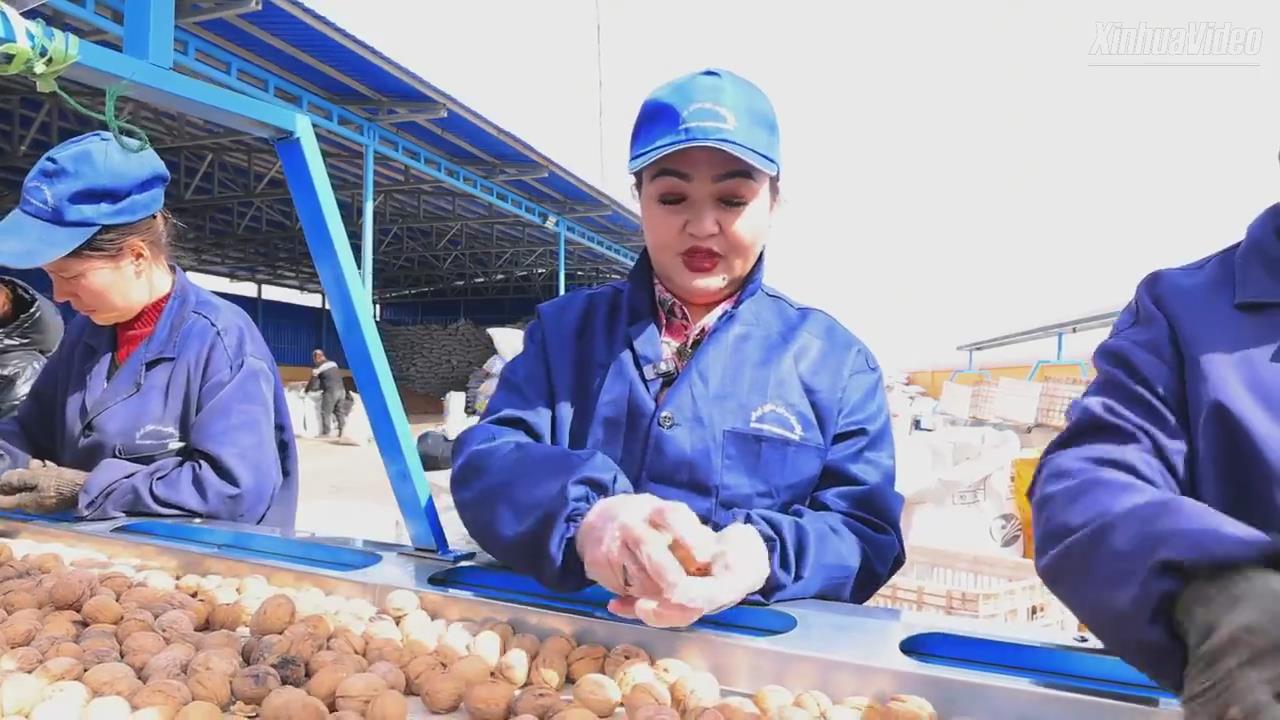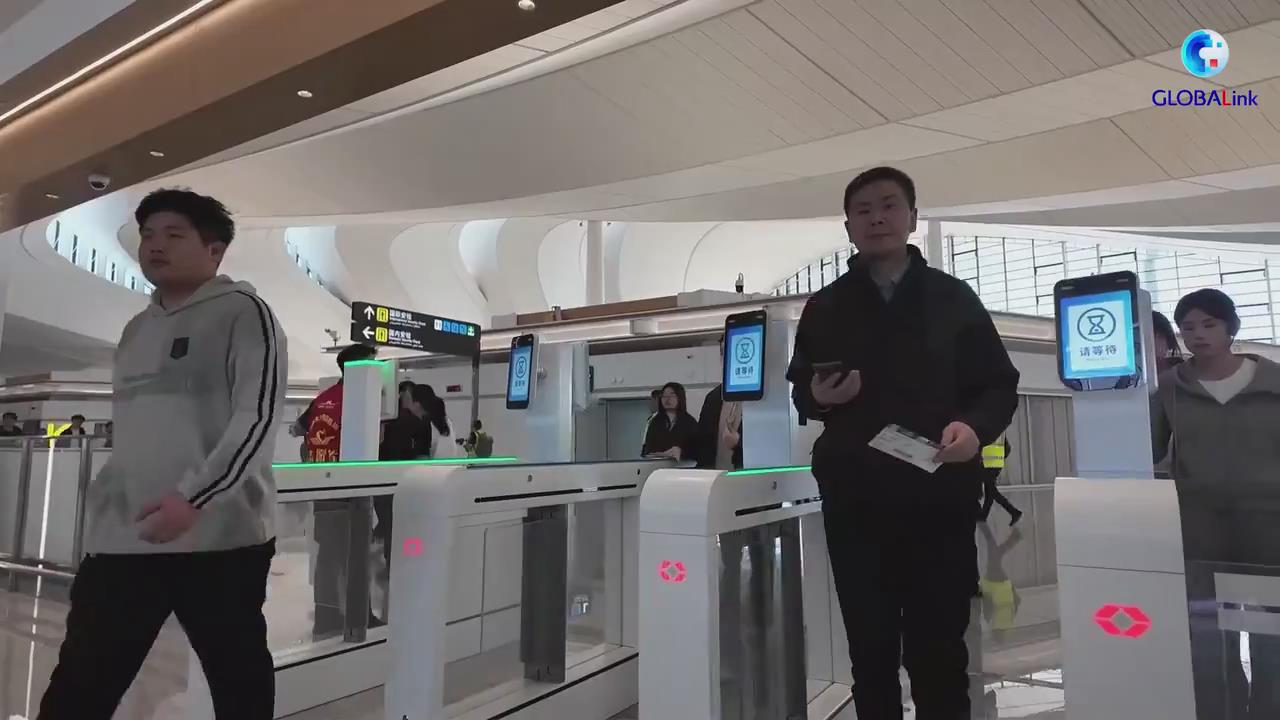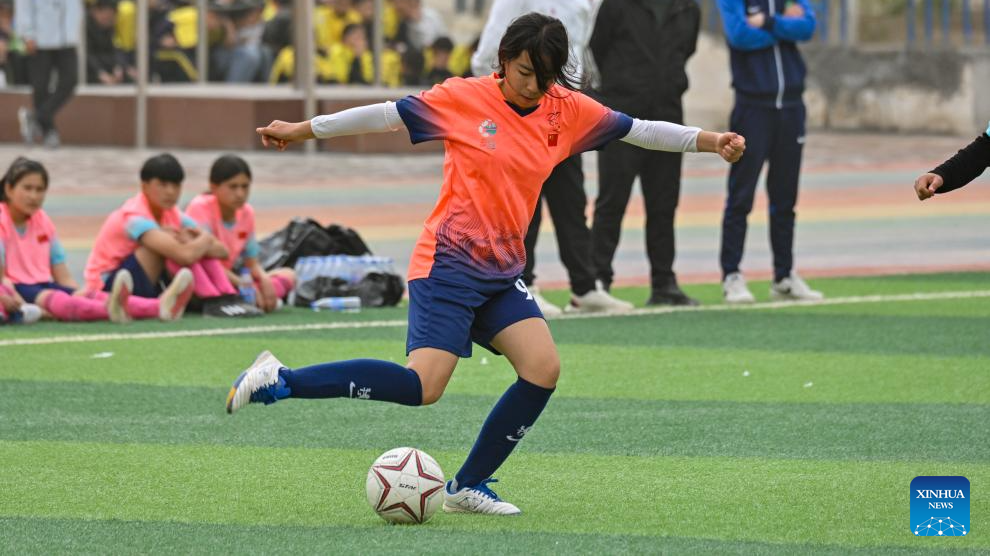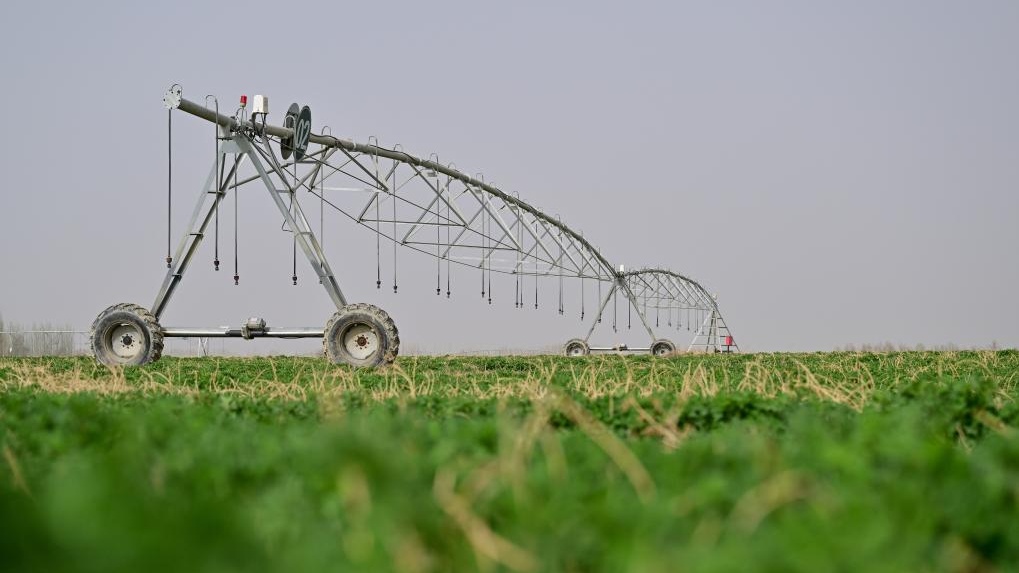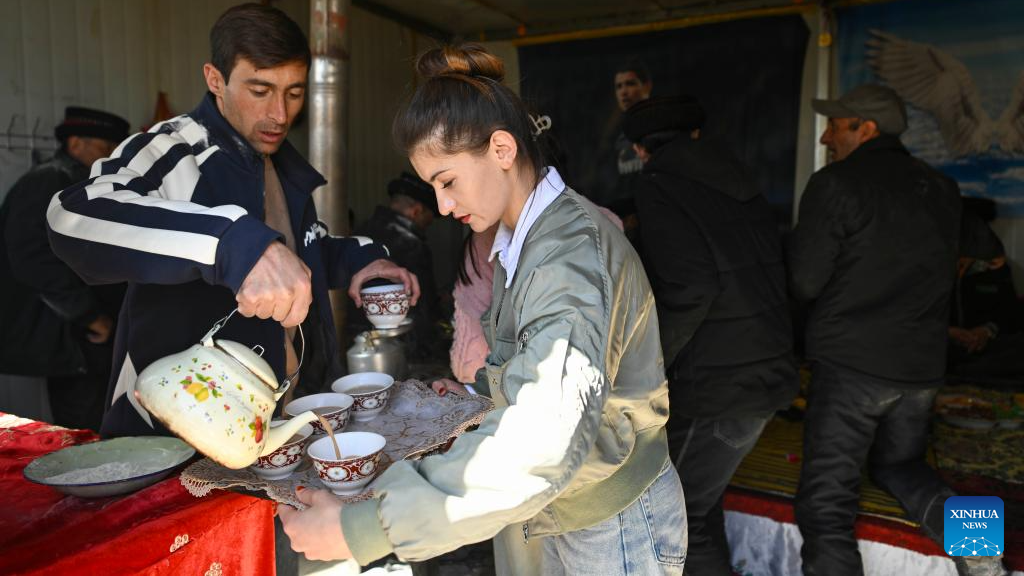Sun Zhen (Counselor of the Information Department of Chinese Ministry of Foreign Affairs): In the past few months, four press conferences on Xinjiang-related issues have been held in the Ministry of Foreign Affairs. Many concerned issues are discussed and answered. Today, we are holding the fifth press conference. Recently, as Adrian Zenz, the so called Germany scholar, has concocted a “report related to Xinjiang issues” which are full of lies and fake information, MFA has specially invited delegation from Xinjiang Uygur Autonomous Region to attend the conference, briefing us the real situation in Xinjiang to meet the concerns of the press. The participants of today’s conference are: Xu Guixiang, Deputy Director of CPC Publicity Department of Xinjiang Uygur Autonomous Region; Elijan Anayat, Spokesman of Information Office of People’s Government of Xinjiang Uygur Autonomous Region; Mahmut Abduwali, Associate Researcher of Xinjiang Academy of Social Sciences; Gulbostan Rozi, Representative of Ethnic Females in Kashgar City, Kashgar Prefecture; Halchihan Yusup, Former Trainee of Vocational Education and Training Center in Shanshan County, Turpan City; Mijit Timit, Cotton Grower from Kuqa City in Aksu Prefecture; Abduwali Ablimit, Hatip from Mosque in Shache County of Kashgar Prefecture; Yu Zhonghua, Cadre in Village-resident Working Group dispatched by Tuha Oilfield Branch; and Amangul Tohtisulayman, Parent of Boarding School Student from Yutian County in Hotan Prefecture. Now, the conference officially begins, I’d like to invite Mr.Xu Guixiang to share his words.

Photo taken on March 18, 2021 shows the 5th Press Conference on Xinjiang-related Issues in Beijing. Photo by Wang Zhen

Deputy Director General of CPC Publicity Department of Xinjiang Uygur Autonomous Region Xu Guixiang answers questions at the 5th Press conference on Xinjiang-related Issues in Beijing,March 18 2021. Photo by Wang Zhen
Xu Guixiang: Nice to meet you, friends from the press, I’m very happy to be here giving introductions of related situation.
Recently, Adrian Zen, a German, under the guise of scholarship, has concocted a series of so called “research reports” related to Xinjiang, spreading lies and “releasing poison gas”, wantonly discrediting Xinjiang. Recently, people of all ethnic groups in Xinjiang have attacked and criticized Adrian Zenz through many kinds of way. The main purpose of today’s press is to appease people’s sentiment by exposing real Adrian Zenz and revealing his lies, thus clarifying the truths.
Hence he has got a title of “Expert in Chinese Studies”. However, a variety of evidences suggest that Adrian Zen is not a scholar at all, let alone “Expert in Chinese Studies”, but a member of so called Memorial Foundation for Communism Victims in USA, and an extreme right wing extremist. He is also a backbone member of “research institution” established under the manipulation of US Intelligence Agency, a goon fed by anti-China forces, and much of a accomplice and sinister partner of “Easter Turkistan” terrorist organizations.
The so called “research reports” written by Adrian Zen on the basis of such an identity and purpose must have a sinister political drive and crudely-made content imbued with logical problems, leading to a conclusion to the extreme extent! It is the pure hooliganism in the guise of academia. In terms of research motivation, Adrian Zenz is digging the so called “evidence” for western anti-China forces instead of discussing Xinjiang-related issues with honest attitude; in terms of research content, Adrian Zenz includes Xinjiang-related issues, such as anti-terrorism, safeguarding stability, deradicalization, ethnicity and religion, labor and employment, family planning policy, cultural education, human rights, etc. into the so called “research scope”; in terms of research methods, Adrian Zenz is excellent in fabricating, interpreting, and correlating out of the context, all the “witnesses” he chose are the dregs of society who are morally corrupted with improper behavior, and compulsive liars; in terms of research basis, Adrian Zenz scrabbled up large amount of inconsistent data and cases that are full of loopholes, which can hardly prove anything he said; in terms of the research effects, Adrian Zenz’s so called “research reports” are worthless, with neither credit nor bottom line, a complete pile of garbage.
These pseudo report are frequently rebuked and exposed by many far-sighted personage including The Grayzone (the US independent website), France reporter Maksim Vivas and so on. The website editor of Grayzone, Max Blumenthal said in the interview of CGTV that the conclusion of Adrian Zenz is fragile and ridiculous after forensic dissection of his “report”. In the 2020 published book, Maxime Vivas, a French journalist have exposed and denounced Adrian Zenz’s behavior of putting forward illusion and making fake news. He mentioned in the interview of Global Times that Adrian Zenz has told so many lie, which will take couple of months to expose all of his lies.
However, inconceivably, some senators, media from some countries revere Adrian Zen’s so called “research reports” as a priceless treasure, wantonly quoting groundless and sensational conclusions and officially recognizing the so called “research reports” concocted by Adrian Zen as facts without any investigating and verifying work. The so called “exiles” and “human right defenders” of “Eastern Turkistan” forces run around on sinister errands, offering false testimony and acting as shameless “actors and actresses”, becoming cat’s paws. Especially for a period of time, BBC quoted pseudo scholar Adrian Zenz’s so called Xinjiang-related “research reports” in the name of “freedom of the press”, making and broadcasting fake news without conducting investigation and verification, and making irresponsible remarks on Xinjiang-related policies, smearing and lying, turning itself a platform for Adrian Zenz to spread lies of Xinjiang-related issues. BBC’s frequent breaking through the bottom line of Xinjiang-related reports is the sign of abandoning its professional ethics in the news media. These anti-China forces act in collusion with each other and have staged disgusting and ridiculed farces, slap-sticks and absurd plays.
There’s an old saying in China, what goes around,comes around. Evils will finally be clearing up by justice. As far as we know, recently, some people and enterprises in Xinjiang are entrusting lawyers to sue Adrian Zen, demanding him to apologize, restore reputation and compensate for loss. Some suffered masses in Xinjiang also plans to sue BCC, which is same as Adrian Zenz who will end up in sitting behind the glass of the dock, accepting verdict of law and justice.
At present, Xinjiang has made unprecedented achievements in economic and social development and people’s livelihood improvement. All the places around Tianshan Mountain take on a good look, with social stability and people living and working in peace and contentment. The sense of gain, happiness and security of all ethnic groups has been constantly enhanced. The world has witnessed all these achievements and progress, which can never be wiped out by such a “academic rogue” as Adrian Zen and his likes. Adrian Zen, together with his so called “research reports”, is bound to be swept into the garbage heap of history and despised by 250 million people of all ethnic groups.
Today, let’s dissect some of the views in Adrian Zenz’s “research report” to find out how ridiculous that will be.
Adrian Zenz has claimed in his report that Xinjiang has implemented “genocide” policy, and that the population of ethnic minorities including the Uygurs is undergoing a stagnant growth. This question will answered by Mahmut Abduwali.

Mahmut Abduwali talks about his own views at the 5th Press conference on Xinjiang-related Issues in Beijing, March 18, 2021. Photo by Wang Zhen
Mahmut Abduwali: The so called “Genocide” and “the stagnant growth of the population of ethnic minorities including the Uygurs” preached by Adrian Zen is absolutely preposterous, a complete slander and lie out of ulterior motive.
Adrian Zen claimed in his report The Movement of Chinese Government to Curb the Birth Rate of the Uygurs--Sterilization and Forced Abortion that the natural population growth rate in Xinjiang have drastically dropped since 2015 and that the natural population growth rate in Kashgar and Hotan is just 2.58‰. He also cited 2020 Department Budget Publicity of Health Committee Kizilsu Kirgiz Autonomous Prefecture, drawing a conclusion “a population growth rate objective close to zero (1.05‰) in 2020 has been set in Kizilsu Kirgiz Autonomous Prefecture. Referring to this, he discredited the population policy of ethnic equality in Xinjiang as “genocide”. However, according to 2019 Xinjiang statistical yearbook released by Bureau of Statistics of Xinjiang Uygur Autonomous Region, in 2018, the natural population growth rate in Kashgar is 6.93‰, and in Hotan 2.96‰. Obviously, Adrian Zen’s data is completely out of fabrication. Meanwhile, from the documents issued by Health Committee of Kizilsu Kirgiz Autonomous Prefecture, it can seen that the ratio used in the natural population growth rate is percentage, namely, the objective of natural population growth rate of Kizilsu Kirgiz Autonomous Prefecture in 2020 is 1.05%, and thousandth ratio is 10.5‰. Adrian Zen deliberately faked the figures in the document of Kizilsu Kirgiz Autonomous Prefecture, completely violating the scientific research norms and methods, which fully exposes his sinister intention of discrediting Xinjiang.
The implementation of family planning policy in China has experienced an orderly process. It first started in the inland provinces and then moved to the frontier provinces, in the urban area first and then to the rural area, and on the Han population first and and then on the ethnic minorities. the Chinese government has implemented a relatively loose family planning policy on the ethnic minorities, which is much tighter on the Han population. In 1975, Xinjiang started the implementation of the family planning policy in Urumqi and other cities where the Han population were relatively concentrated. In 1981, the Interim Provisions on Some Issues of Population and Family Planning was issued, and the family planning policy was implemented in an all-round way among the Han population. In 1992, the Family Planning Measures of Xinjiang Uygur Autonomous Region was issued, and the family planning policy on ethnic minorities was implemented more leniently than that on the Han in Xinjiang, that is, one couple of the Han people in cities and towns were proposed to have one child, and in rural area, they were proposed to have two children. However, one couple of ethnic minorities in urban area were proposed to have two children, and in rural area, they were proposed to have three children. In 2017, with the improvement of the economic and social development and the convergence of the child-bearing wishes of the people of all ethnic groups, Xinjiang revised the Regulations on Population and Family Planning of Xinjiang Uygur Autonomous Region, stipulating that all ethnic groups should implement a unified family planning policy, that is, a couple in urban areas can have two children, and a couple in rural areas can have three children. It can be seen that the implementation of family planning policy on ethnic minorities in Xinjiang is not only 17 years later than that on the Han population, but also relatively looser than that in the inland provinces.
The population of ethnic minorities in Xinjiang has steadily increased. According to statistical data, from 2010 to 2018, the permanent population of Xinjiang grew from 21.8158 million to 24.8676 million with an increase of 3.0518 million and 13.99%. Among them, the population of ethnic minorities grew from 12.9859 million to 15.8608 million with an increase of 2.8749 million and 22.14%; the Uygur population grew from 10.1715 million to 12.7184 million, with an increase of 2.5469 million and 25.04%; the Han population grew from 8.8299 million to 9.0068 million, with an increase of 0.1769 million and 2.0%. The growth rate of the Uygur population is not only higher than that of the whole Xinjiang population, but also higher than that of other ethnic minorities, obviously higher than the Han population. I would like to ask Adrian Zen, is the population of ethnic minorities including the Uygurs is undergoing a stagnant growth?
Recently, we noticed that so called “experts” including Adrian Zen published a report in the name of an US think tank research institute for innovation strategy and policy, claiming that an assessment has been made on the persecution on the Uygurs in Xinjiang, and that the results meet the “standard of genocide”. The report as long as 55 pages is full of groundless conjectures and it is sheer nonsense. In the preface of the report, it is stated that so called “evidence” comes from “official information openly released and leaked in China”, “witnesses and their testimony”, “public satellite image analysis”, “information spread on the internet in China ” and “other sources available”. However, there is not a single word which makes a mention that any one of the “ dozens of experts” has paid a visit to Xinjiang for a field investigation. Recently, people of all ethnic groups in Xinjiang are making micro videos and publishing articles to vehemently refute the fallacy that Xinjiang has implemented “genocide”, as is preached by anti-China forces. However, the so called “experts” would rather believe the lies concocted by a handful of people, than listen to the common aspiration of 25 million people of all ethnic groups in Xinjiang. This can only prove that they don’t care what the truth is, but they are deliberately creating slanders and fabricating fallacies to produce excuses for their boss to Intervene in Xinjiang affairs and interfere in China’s internal affairs. As a Uygur living in Xinjiang, I don’t think there is any so-called “genocide” in Xinjiang at all. No matter how many lies there are, they will be laid bare in the face of the fact that people of all ethnic groups in Xinjiang live a happy life.
Xu Guixiang: Adrian Zenzclaimed in his report that Xinjiang has imposed a forced sterilization on the Uygur women. Mr.Elijan Anayat, will you please introduce the related situation?

Spokesperson of Information Office of People’s Government of Xinjiang Uygur Autonomous Region Elijan Anayat answers questions at the 5th Press conference on Xinjiang-related Issues in Beijing, March 18,2021. Photo by Wang Zhen
Elijan Anayat: Adrian Zen claimed in his report The Movement of Chinese Government to Curb the Birth Rate of the Uygurs--Sterilization and Forced Abortion that Chinese government has imposed contraceptive surgery on the Uygur women with one child and sterilization on the Uygur women with three children. This is sheer nonsense. The birth technology service in Xinjiang has always been based on the principle of combining state guidance with individual voluntariness and people of all ethnic groups including the Uygurs enjoy the right to the informed choice of contraceptive methods. Late-stage abortion, forced contraception, forced pregnancy test and other illegal practice are prohibited in Xinjiang. As for the masses of ethnic groups, whether or not to take contraceptive measures and what kind of contraceptive methods to take are all decided by individuals on their own initiative, and no organization or individual can interfere. There are so such problems as “forced sterilization” at all.
In the report, the content about “the newly-increased cases of placing contraceptive device” is much more ridiculous. According to 2019 China Health Statistics Yearbook released by National Health Commission, in 2018, the number of new cases of placing contraceptive device in Xinjiang is 328,475 and the number of the newly-increased cases of placing contraceptive device in China is 3,774,318. Actually, the newly-increased cases of placing contraceptive device in Xinjiang only account for 8.7%, including the Han women. Adrian Zen claimed that the women in Xinjiang receive 4 to 8 contraceptive device placing operations every day. This obviously doesn’t conform to the common sense. Adrian Zen fabricated the sensational date in order to create a false impression that “most of women in Xinjiang are forced to receive contraceptive surgery.
As for Zaomure Dawuti, Miriguli Tu’erxun, Tu’erxunnayi Ziyaodeng and those people mentioned in the report, actually they are “actresses” employed by western anti-China forces and feeding on discrediting Xinjiang abroad. We have exposed their nature in Xinjiang related issue press conferences. Zaomure Dawuti and Miriguli Tu’erxun have never received sterilization, which can be proved by their parents and hospital. And Tu’erxunnayi Ziyaodeng’s two husbands said she is sterile. What's more funny is that Adrian Zen used avphoto of two Uygur women receiving physical examination in a hospital in order to prove that “forced sterilization” exists in Xinjiang. However, after verification, the photo comes from “people.cn”. The caption of the photo says, “Several young women of ethnic minorities from the rural area of Hotan Prefecture Xinjiang are enjoying their first health check-up in the Hospital of The Third Regiment of the Second Division of the Production and Construction Corps Xinjiang.”
Today we have invited Gulbostan Rozi, from Yingwusitan Township Kashgar City to be here. She will talk about her story.

Gulibostan Rozi talks about her own experiences at the 5th Press conference on Xinjiang-related Issuesin Beijing, March 18, 2021. Photo by Wang Zhen
Gulbostan Rozi: My name is Gulbostan Rozi. I come from Yingwusitan Township Kashgar City.
My husband and I got married in March 2009, and we had our first child in 2010. During pregnancy, we went to the hospital every month for free prenatal examination and listened to the doctor’s notes about pregnancy.The State also gave free vaccines to my kid and gave us free nutrition.
Now my eldest daughter and second daughter go to primary school free of charge, and my son goes to kindergarten also free of charge. He likes kindergarten very much and goes to kindergarten very actively. Every day after school, I pick him up and play games with him. I’m very happy. Now the biggest wish of my husband and me is to bring up our three children and enable them to receive a good education, enter a good university and find a good job. I know that in our village many families like mine, have three kids. I have never heard that someone has received “forced sterilization”. As a Uygur proverb goes, when you toss a stone upward, mind your own head. Adrian Zen, you big liar, stop being an open-eyed blind. Be careful that the stone will hit you in the head.
Xu Guixiang: Adrian Zenz claimed in his report that “the deradicalization measure for helping and education is a kind of political movement for re-education in Xinjiang”. I want to talk about my views on this issue.
Adrian Zen stated in the report that “the deradicalization measure for helping and education is a kind of ‘political movement for re-education in Xinjiang’ and free of law and regulation”. He disdained in the report that the vocational education and training center is to brainwash the trainees and he listed so-called evidence: “the training here includes military drills, singing patriotic songs, learning crime law, marriage law, watch patriotic videos, and all trainees supposed to be encouraged greatly after it……all these activities are designed for political education.”
In fact, the vocational education and training centers established in Xinjiang in accordance with the law are all schools in nature, which are not essentially different from the "transformation and separation project" set up in the UK and the "de radicalization center" set up in France. They are both beneficial attempts and positive explorations of preventive anti-terrorism and deradicalization, aiming at eliminating terrorism and religious extremism from the source. The vocational education and training center follows the concept of "providing education and economic opportunities for violent extremist groups and encouraging them to break away from violent extremist groups" advocated by UN’s Action Plan on Preventing Violent Extremism, which is fully in line with the principles and spirit of the United Nations global counter terrorism strategy, and is also an important measure for deradicalization.
Adrian Zen regarded "singing patriotic songs, learning criminal law, marriage law and watching patriotic videos" in the education and training center as the brainwashing of "political education transformation". I want to ask him that which country's citizens do not love their motherland, do not learn about their own laws, and do not learn their own national language? For example, the United States, since the end of the 19th century, has required students to read or recite the "pledge of loyalty", which has become a tradition in American primary and secondary schools. According to relevant media reports, an 11-year-old American boy was arrested in February 2019 for refusing to swear an oath of allegiance to the national flag.
The effectiveness of deradicalization is confirmed by the personal experience and feelings of the trainees graduated from the vocational education and training center, who shared their stories on the Xinjiang Related Issues Press Conferences before, who explained how they studied the Constitution, criminal law, anti-terrorism law, religious affairs regulations and other laws and regulations, and learned what is legal, what is illegal, what can be done and what cannot be done, so as to avoid breaking the law. Some former trainees said they had learned husbandry, mechanical maintenance, computer and other skills in the education and training center.
Today we have invited Halchihan Yusup, a gradated trainee from the vocational education and training center of Shanshan County Turpan City to be here. She will talk about her experience in the vocational education and training center.

Halichihan Yusup talks about her own experiences at the 5th Press conference on Xinjiang-related Issues in Beijing,March 18 2021. Photo by Wang Zhen
Halchihan Yusup: My name is Halchihan Yusup. I am a gradated trainee from the vocational education and training center of Shanshan County Turpan City. Now I am the head waitress of a hot pot restaurant in the county.
In the past, I was affected by the religious extremism and had many wrong ideas. I used to think that it is a violation of religious doctrine to wear fashionable dress for a woman and that women can not be dressed in wedding veil at wedding ceremony and can not weep at funeral. Gradually, I began to be reluctant to communicate with others, and my temper was also bad. My children were afraid of me and didn’t want to be close to me. Later, at the persuasion of my family, I went to the vocational education and training center.
In the vocational education and training center, the teacher said the religious extremists divide the medicine into halal and non-halal. It is really ridiculous. However, such ridiculous story has happened on me. Before I went to the vocational education and training center, once my daughter caught a fever as high as 39.5℃. My husband was about to buy some medicine, but I objected, saying that the medicine is not halal, and I had a big quarrel with my husband.He ignored me for a long time. In class, I cried with remorse and felt sorry for the child. When the teacher saw it, she kept comforting me.
After I completed my study, My kids said I had changed. They were not as scared of me as they used to be, and there came the laughter at home. With the skill I had learned , I found a job in a restaurant. In my work, I was active, and I was very enthusiastic to the guests. The boss saw that I worked very hard, so he made me a head waitress. In the future, I will work hard and make money. I will also open a restaurant to make my family’s life better and better.
Xu Guixiang: In his report, Adrian Zens claimed that “there existed forced labor in the vocational education and training centers ”. I’d like to invite Mr. Elijan Anayat to give us introduction of related situation.
Elijan Anayat: In the so-called report: a complete change towards healthy mindset-the political reeducation movement in Xinjiang China, he claimed that the trainees in the vocational education and training centers had been “placed” to do mandatory works and that the trainees were arranged to work at factories adjacent to the vocational education and training centers. His intentions were to smear the vocational education and training centers in Xinjiang, trying to accuse Xinjiang of violating the human rights of the trainees and to negate the legitimacy of the vocational education and training works in Xinjiang.
In his so-called Beyond the Camps: Beijing’s Long-Term Scheme of Coercive Labor, Poverty Alleviation and Social Control in Xinjiang, he “depicted” a detailed procedure as to how the vocational education and training center implemented the “forced labor” in the following order: detained in the vocational education and training center-compulsory work in the factories on the sites or in adjacent factories-compulsory work at satellite factories in their hometowns(or other factories and plants). In his report, he also listed some cases from the industrial parks of Xinhe County, Aksu Prefecture and claimed that “It was said that all the workers were from the vocational education and training center of Xinhe County and that the government dispatched police and trainer of special kind to the factories, thus making the factories operate in a “semi-military”style. The key information he wanted to release was “all the workers were from the vocational education and training centers in Xinhe County, while his information sources were just “hearsay”. In his report, he didn’t give any explanation, illustration or note. It is not hard to conclude that he is an “expert” in writing reports through pure assumption and hearsay.
In his another so-called report Brainwashing, Police and Forced Detention--Evidence of the Nature and Size of “Xinjiang vocational detention camp” from Documents of Chinese Government , he quoted Guizira Auelkhan’s statement saying that “ I spent 437 days in 5 kinds of training. A week of vocational training was included in the last one. After that I was forced to work at a factory.” Seldom people know that Guizira Auelkhan has no basic honesty and integrity and is of low morality. In 2013, she was granted a loan of 40,000 yuan from the rural credit cooperatives of Yining County through the policy of “joint guarantee of 5 people”. However, when the loan was due, she maliciously defaulted on the loan and has not paid interests so far. Therefore,she was enlisted on the “blacklist of dishonesty”. She once was interviewed by the Global and Mail. In the interview, she claimed that her life ideal was to raise her children well into their adulthood. The truth is she has no child at all. She was indifferent to her 3 step children after marrying the 3rd husband. She attempted to persuade her step-daughter Kuniduz Turson to pay her debts. Moreover, according to the statements of her two ex-husbands, she committed adultery during their marriage and was morally corrupted.
In fact, the courses set up in the vocational education and training centers were to let the trainees master the practical operating skills. The finished goods they made were not merchandise. The personal experiences of many trainees graduated from the centers can prove it.
Xu Guixiang: In his report, Adrian Zens claimed that “large-scale forced labor existed in Xinjiang”. I’d like to discuss this question with you.
In the so-called Beyond the Camps: Beijing’s Long-Term Scheme of Coercive Labor, Poverty Alleviation and Social Control in Xinjiang, he stated that “Chinese government is transferring a large number of ethnic workers from Xinjiang to enterprises in eastern China” and that “the purpose was to transform their ethnic identity and their worldview”. These utterances were nothing but his erroneous assumptions and baseless lies.
The truth is that workers of all ethnic groups in Xinjiang choose their profession according to their own will, conclude labor contract at an equal footing with enterprises and working units self-willingly and get payment accordingly. They enjoy absolute freedom in choosing working sites as well. For instance, governments at all levels have been actively building information platform, providing information of job vacancies for laborers to choose. Workers of all ethnic groups get access to employment information, such as climate differences in the working places, accommodation, salary, etc. They will sign up for the job vacancy according to their own wish after they have a basic understanding of the working condition. The location of the working site, the enterprise and post are all chosen by workers themselves. Xinjiang government strictly abides by the relevant laws and regulations of the country through promoting the rule of law, enhancing both employers and employees’ awareness of law and carrying out regular inspections on law abiding. The set-up, operation, inspection, investigation and management of the labor relations are all included in the building of a law-based society.
In recent years, the proactive employment policies adopted by Xinjiang government have improved people’s income by a great deal, especially people in poverty-stricken areas in southern Xinjiang. According to incomplete statistics, laborers from Xinjiang working in other provinces can earn up to 40,000 yuan per year, equivalent to the disposable income of those permanent residents at local. Laborers working at other places within Xinjiang can make approximately 30,000 yuan per year, far beyond what they can make from doing farm work back at home. The changes took place in many aspects, from having enough to eat to having a balanced diet, from having enough clothes to keep warm to choosing what fits me most. Lots of merchandise are affordable now. People’s living standards are substantially improved.
Xu Guixiang: Adrian Zens claimed in his report that “ethnic minorities were forced by the government to pick cottons in Xinjiang”. I want to talk about it.
In his so-called the forced labor in cotton production in Xinjiang:labor transfer and incite the “lazy”minorities to pick cotton, Adrian Zen said that “tens of thousands of ethnic minorities were forced to manually pick cotton through the countries mandatory labor transfer and poverty alleviation plan”, “70% of cotton products from Xinjiang were still picked by manual laborers”and “the cotton production will still heavily rely on laborers”, “the labor transfer process was comprised of compulsory mobilization through local working team, the cotton-picking workers transferred under supervision and working with government officials and police’s monitor(at least under certain circumstances)”.These statements were nothing but sheer attack and slander.
As a matter of fact, cotton production in Xinjiang has already highly mechanized. Large quantities of cotton-picking workers are not necessary even in the the busy season of picking. Statistics released by the agricultural department in Xinjiang in 2020 showed that 69.83% of cotton was picked by machines and that 95% cotton in northern Xinjiang was picked by machines. The so-called Adrian Zen’s statement that 70% of cotton in Xinjiang was picked by manual labor is seriously inconsistent with the facts.
There is no such a thing as forced labor and no need to force people to work. In previous years, lots of migrants workers from Henan, Sichuan province came to Xinjiang by train to pick cottons in harvest season. The picking was indeed laborious.Since the accommodation was covered by the cotton planters, their income were satisfying. Thus some of the minority workers also joined in the cotton-picking willingly.The cotton-picking workers signed contract with planters willingly and get paid accordingly.To our knowledge, cotton-picking workers can make at least 10,000 yuan within the 50 days of cotton-picking season.It’s a satisfactory income within such a short period of time.Why would they refuse to do the work? The reason for the declining number of Han Chinese take up the cotton-picking job was that cotton-picking workers from other provinces can make much more in their hometown compared to in the past. The decline in the number of Han Chinese picking cotton has nothing to do with Adrian Zen’s claim that “the government forced ethnic minorities to work”.
Today we have invited Mijit Timit, a cotton farmer from Aksu Prefecture, to talk about his experience.

Migit Timt talks about his own views at the 5th Press conference on Xinjiang-related Issues in Beijing, March 18, 2021. Photo by Wang Zhen
Mijit Timit: My name is Mijit Timit. I have farm land with an area of 300 mu. I mainly grow cotton with an annual income of 150,000 yuan.
Several years ago, when the cotton picking season came, our family was usually short of manpower. We would spend money to ask local cotton pickers and cotton pickers from the inland provinces to help us pick cotton. At present, we are mechanical picking. The cost of machine picking cotton is lower and the efficiency is higher. Now the cotton in my family is picked up in less than one day, and there is no need for so many people to pick it by hand.
Recently I heard some media reports abroad saying that Xinjiang forces farmers to plant and pick cotton. It is sheer nonsense! We grow cotton on our own farmland, collect our own cotton, and earn our own money. How can it be called forced labor? We invited cotton pickers to pick cotton. Each of them could earn more than 10,000 yuan in more than two months. People all rush to pick cotton and there is no need to force them. Those who are slandering have no intention of protecting our rights, but the intention of leaving our farmers cotton rot in the field. They want to destroy us farmers’ income sources, so that we lose our job and food, and return to the previous days of poverty. We firmly refuse it!
Xu Guixiang: In his report Adrian Zens said that “Muslims’ religious belief was suppressed by Chinese government” and that “de-radicalization in its essence was to promote secular humanism and eradicate religious customs”. let’s see how is Mr. Elijan Anayat going to say.
Elijan Anayat: In his so-called report Breaking the Roots:the Evidence of the Scheme of Parent-Child Separation in Xinjiang, Adrian Zen said that “over 1.5 million Muslims were involved in different kinds of political re-education, detention and training camp”,“the CPC composed a complicated detention and release standards because of its fixed fear of religious belief and ethnic difference” and that “25.3% of Xinjiang natives were detained because they have religious beliefs”. These are sheer fabrication and slander.In fact, the campaigns on counter-terrorism and de-radicalization in Xinjiang strictly abide by the Law on Counter- terrorism of the People’s Republic of China.According to the Law, the campaigns should not target any particular region, ethnic group or religion and should respect citizen’s freedom of religious belief and minorities’ customs. Any behavior that may violate the basic rights and interests of all ethnic group in carrying out counter-terrorism and de-radicalization should be prevented.
In his so-called report “Karakax list”: analysis on detention movement in Xinjiang, China, Adrian Zen wrote that “ In May, 2023, Xinjiang Uygur Autonomous Region issued the NO.11 document of Xinjiang Uygur Autonomous Region Party Committee” and that the document played a vital role in providing the ideological guidance and administrative basis for the constantly progressing re-education campaign. It advocated an intrusive and stringent method for remaking social culture.The method based on ‘a rigid educational guidance towards customs and religious beliefs with the aim of promoting secular humanism and eradicate religious customs”. Based on the gathered information, the so-called “ NO. 11 document issued by the Xinjiang Uygur Autonomous Region’s Party Committee set requirements for the governance of illegal religious activities and the containment of infiltration of religious extremism thought. In carrying out works, the local government set a clear line between religion and minorities’religious customs, between normal religious activities and religious extremism. The freedom to have religious belief and customs of all ethnic groups are fully guaranteed in Xinjiang. For example, on Nov 3, 2020, the report on the reality of religious belief in Xinjiang released by the Islamic Association of Xinjiang Uygur Autonomous Region pointed out that governments at all levels in Xinjiang fully respected traditional religious customs, such as naming, holding ceremonies and Nazer. Religious activities like fasting, service, citing the Koran and pray are all conducted by their own wish. No one nor any force ever intervened.
We have invited the president of the Islamic Association of Shache County in Kashgar Prefecture and the hajib of Aletun Mosque in Shache Town, Abduwali Ablimit to talk about the freedom of religious belief in Xinjiang.

Abduwali Abulimit speaks at the 5th Press conference on Xinjiang-related Issues in Beijing, March 18, 2021. Photo by Wang Zhen
Abduwali Ablimit: My name is Abduwali Ablimit. I am the president of Islamic Association of Shache County Kashgar Prefecture and the hajib of Aletun Mosque in Shache Town.
In Xinjiang, the government protects normal religious activities according to law and fully respects Muslims’ customs. Taking Aletun Mosque where I am serving as example, the mosque has a history of more than 480 years, covering an area of more than 2600 square meters. The hall of the mosque covers an area of over 300 square meters. There are water supply, electricity, road, gas, communication, radio and television and other facilities in the mosque, and the mosque is equipped with medical services, electronic display, computers, air conditioning, fire fighting facilities, drinking water equipment. The conditions are very good. All the muslims around go to the mosque to attend five services, Sunday services and services for two festivals. After the Muslims around get the marriage certificate from the Civil Affair Department of the government, they will invite me to their homes to preside over the Nicah ceremony. When someone passes away, I will hold a standing ceremony for the dead according to religious customs, and then the dead is buried in the cemetery.
Adrian Zen claimed that Xinjiang Muslims are held in detention for their religious belief. It is sheer nonsense. China is a country ruled by law. In the combat against crime, there has never been a specific religion and ethnic group that has been directed against. The government cracks down on criminals who spread religious extremism and are engaged in separatist, destructive and violent terrorist activities. Taking advantage of the simple religious feelings of Muslims, they spread extreme ideas, wantonly distorting the teachings and rules of Islam denying all secular ideas and achievements of modern civilization, advocated “to go to heaven through jihad martyrdom”, and persecuted “heretics” and “traitors”. Some religious people with good faith were rejected, persecuted and even murdered by them. These extreme behaviors have brought great disasters to the people of all ethnic groups in Xinjiang, including Muslims, and also seriously damaged the image of Islam. In my opinion, combating religious extremism is to better protect legitimate religions. Now there have been no violent terrorist cases in Xinjiang for more than four consecutive years. We religious people feel very safe and firmly support the measures taken by the government.
Xu Guixiang: Adrian Zenz said in the report that " Karakax list " proved how Chinese government has constructed a system of "ideology and government micro governance aiming at cultural extinction". This question goes to Elijan Anayat.
Elijan Anayat: Adrian Zen’s so-called “Karakax list” is a complete rumor. In the so-called report entitiled The Karakax List: Dissecting the Anatomy of Beijing’s Internment Drive, Adrian Zen(Adrian Zenz) speculated that the so-called "Karakax list" in PDF format" is likely to be conversed from Excel or Word tables ". For the incomplete data in the PDF file, he explained: "this conversion method is unprofessional, and will necessarily lead to (a small amount of) data loss", and jokingly claimed: "such an error will actually increase the reliability of the file, because generally a forged file will look more perfect." Adrian Zen is making a fuss on a list that even he can't be sure of its authenticity. It's easy to doubt the credibility of his conclusions. On February 18, 2021, the US independent news investigation website Gray zone issued an article pointing out that Adrian Zen's report came from speculation and suspicious media reports. According to the investigation of the relevant departments, the so-called “Karakax list” on which Adrian Zen was based was completely forged by collusion between the "East Turkistan" members in China and abroad.
In the report, Adrian Zen claimed that all 311 people in the list hail from Moyu County were detained at vocational education and training centers. According to the investigation of the relevant departments, the vast majority of the 311 people listed in the so-called " Karakax list" are residents of Bostan Street in Moyu County. They have been working and living normally there. Only a few of them who are infected with religious extremism and committed minor crimes have been sent to vocational education and training center according to law. Adrian Zen used the identity information of residents in the "Karadax list" to spread rumors and slander, which made them so indignant that they all volunteer to expose the rumors.
Xu Guixiang: Adrian Zenz said in his report that "the implementation of national common language in Xinjiang is to eliminate minority languages, brainwash minority people, and "forcing minority people to change their traditional cultural concepts and a kind of cultural extinction. " I’d like to invite Mahmut Abuduwali to answer this question.
Mahmut Abuduwali: Adrian Zen disdained the Chinese government in many reports in promoting the national common language and text education in Xinjiang as "cutting off the cultural roots". His statement is a 100% lie. In recent years, according to the education law of the people's Republic of China, the teaching of national common language and characters has been carried out in the whole region, and remarkable results have been achieved. The quality monitoring of compulsory education in autonomous region shows that the teaching quality of the whole region has been significantly improved, especially in the first and second grade of primary school, which has laid a solid foundation for the growth and progress of all ethnic groups and adolescents. At the same time, based on the requirements of the national curriculum, Xinjiang has opened courses in primary and secondary schools, including Uygur, Kazakh, Kirgiz, Mongolian and Xibo languages, which fully guarantees the rights of minority students to learn their own language and words, and effectively promotes the inheritance and development of minority language and culture.
The language and words of various ethnic minorities in Xinjiang are widely used in education, justice, administration, social and public affairs. For example, multilingual and multilingual text services can be easily found in the social and public area such as post service and telecommunications, medicine and health, commercial stores, traffic signs and so on. When performing official duties, government at all levels may use the the national common language and the language of ethnic groups who enjoy autonomy at all levels at the same time. For example, there are four layout in Han, Uygur, Kazak, Mongolia; there are 12 radio programs in five languages in Xinjiang People's Radio Station:Han, Uygur, Kazak, Mongolia and Kirgiz; there are 12 TV programs in four languages in Xinjiang TV station:Han, Uygur, Kazak and Kirgiz. All these provide great convenience for the people of all ethnic groups in daily life.
In his so-called report "Outside detention camps: long-term forced, poverty alleviation and social control plan in Xinjiang, China", Adrian Zen denounced the policies and measures implemented by the Chinese government to promote the employment of ethnic minorities in poverty-stricken areas of Southern Xinjiang, and regards them "cultural extinction" aimed at ethnic minorities, and accused these measures of "eliminating the traditions, religion and family life of ethnic minorities" . This a a complete slander. As a matter of fact, the Chinese government attaches great importance to the protection and development of the excellent traditional culture of all ethnic groups, and guarantees that all ethnic groups fully enjoy the freedom to maintain or reform their own customs and habits according to law. In recent years, Xinjiang has been actively collecting, protecting and rescuing ancient books of various ethnic groups. For example, it has translated and published the endangered Kutadgu Bilig (Wisdom of Fortune and Joy), sorted out and published Mongolian epic Janger and other folk literature works, and established three national productive protection and demonstration bases for intangible cultural heritage projects, including Uygur musical instruments, carpets and Etles silk. Uygur Muqam Arts and Kirgiz epic Manas have been listed in UNESCO's "representative list of human intangible cultural heritage" and "list of intangible cultural heritage in urgent need of protection".
Xu Guixiang: In his report, Adrian Zenz said that Xinjiang monitored ethnic minorities through the work of “investigating people’s condition, benefiting people’s livelihood and drawing people’s hearts closer” and digital social governance. This question goes to Elijan Anayat.
Elijan Anayat: In his so-called The Karakax List: Dissecting the Anatomy of Beijing’s Internment Drive, Adrian Zen said “the working team of ‘investigating people’s condition, benefiting people’s livelihood and drawing people’s hearts closer’ aims to penetrate into the Uygur communities and families, and its main purpose is to collect information, investigate and monitor residents, and provide support for the detention”. This is a sheer fabrication out of nothing. In fact, since 2014, Xinjiang has carried out the work of “investigating people’s condition, benefiting people’s livelihood and drawing people’s hearts closer” in villages for seven consecutive years. Every year, 12,000 working teams and more than 70,000 cadres are selected from government organizations at all levels to go deep into the villages, pastoral areas and local communities, and do many good and practical things that are popular with the people, which are warmly supported and welcomed by the masses of all ethnic groups.
Now, let’s invite Yu Zhonghua, a team member of CNPC Tuha Oilfield Company in Sayi Village, Langan Town, Shufu County, to tell us their story.

Yu Zhonghua talks about their stories at the 5th Press conference on Xinjiang-related Issues in Beijng, March 18, 2021. Photo by Wang Zhen
Yu Zhonghua: in 2017, we went to Sayi Village, Langan Town, Shufu County to work in the village. After arriving here, we were attracted by the simple folk customs and hospitable people here. Before, people were living on growing wheat and corn. Since the production structure is simple, poultry raising isn’t that profitable. The annual per capital income in 2017 is less than 6000 yuan. In view of the current situation that villagers’ planting and breeding technology was not high, we invited technical personnel to teach villagers high-efficiency agricultural planting, forest and fruit planting, vegetable planting, breed cattle with more than one million annual income. Tusunjan Rozi’s greenhouse has brought him nearly ten thousand per mu. The Tayi’erjiang Tuoheti’s and Awaguli Maimaiti’s set up a honey production cooperative in Sayl Village, with an annual output of more than 60 tons of honey and an annual sales revenue of 3 million yuan. We guided the villagers to plan animal husbandry, bee breeding and other techniques for increasing production and income.
With our help, three households including Tulahun Yusup’s have raised more than 60 new t peaches native to Shufu scientifically, with an income of more than 25,000 yuan per mu. We also built workshop for poverty alleviation with monthly income at least 2500 yuan. Villagers asked us whether they could work there. Each time when employees in workshop for poverty alleviation meet us, they all say that, workshop yahshi (good), rehmat (thank you).
We’ve worked, studied, hang out together with villagers since the village-residential work begin. Children in the village will always meet us with “hello, hello”, just like our families.We often visit villagers’ homes, some of them will get upset if we don’t visit. We were having meals and dancing together. We listen to them, chat with them face to face, and solve practical difficulties. We have a good reputation there.
Through efforts of working group, with wisdom and hard work of all the cadres and villagers, the annual per capital income increased from less than 6000 yuan in 2017 to 12000 yuan in 2020. All of the 139 households have got rid of poverty. Great changes have taken place in the village: dusty packway turns into wide asphalt road, mud-brick houses turn into safe housing. There’s full coverage of tap water, TV and network. The bathroom is equipped with water heater and toilet, which are almost the same as the life of urban residents.
Facts are the facts, happy life can’t be wiped out or obliterated by Adrian Zenz’s slander and lie.
Elijan Anayat: Adrian Zen also said in his report that “through administrative management and technological innovation, Xinjiang has carried out large-scale surveillance or grid management specifically for the Muslin minority to collect information.” As we all know, it is a common practice in the international community to use modern scientific and technological products and big data methods to improve the level of social governance. In Xinjiang, these measures have greatly enhanced the sense of security and won the general support of the masses of all ethnic groups. It should be emphasized that these measures are not targeted at any particular ethnic group, and the monitoring facilities themselves will not automatically identify and target a particular ethnic group. They deter bad people and protect good people. At the same time, we attach great importance to the protection of citizen’s personal privacy, strictly implement Civil Code of the People’s Republic of China, Cybersecurity Law of the People’s Republic of China, Decision of the Standing Committee of the National People’s Congress on Strengthening the Protection of Network Information and other laws and regulations, follow the principles of legality, justice and necessity, and do a good job in the collection, use and protection of personal information, etc.
Xu Guixiang: Adrain Zenz said in his report that “the purpose of setting up boarding schools in Xinjiang is to carry out ‘large-scale detention operation’”, and that it is creating “intergeneration separation” and “a powerful tool for assimilating the Uygur nationality”. I’d like to talk about it.
In his so-called report Breaking the Root: Evidence of the Parent-Child Separation Movement in Xinjiang, China, Adrian Zen assumed that boarding schools and preschool education in Xinjiang were the “all-out guarantee” of the so-called “detention movement”, and said that “boarding school system is used to contain and manage the consequences of large-scale detention movement”. Adrian Zenz neither knows Chinese education policy nor did he ever go to boarding school, then he released such mephitis which is foul in nature.
In fact, the establishment of boarding schools in Xinjiang has nothing to do with de-radicalization. Xinjiang is a vast region with a long distance between villages and towns. It is very inconvenient for students to go to school, and a heavy burden for parents to pick up their children to and from school. In order to solve this problem, nearly 400 boarding primary and secondary schools were built in Xinjiang as early as the 1980s. In recent years, the state has strengthened the construction of boarding schools. According to the requirements, Xinjiang has made scientific and reasonable planning in combination with the development of new urbanization, the implementation of Rural Revitalization Strategy, the changing trend of local school-age children as well as factors such as geography, transportation, environment, and safety. Boarding school construction strictly abides by the relevant national and regional construction standards, and all kinds of learning and living facilities are complete. The teachers in boarding schools are guaranteed through recruitment, training, supporting education from other provinces, and government purchase of services. The funds for running boarding schools are entirely borne by the government. In the stage of compulsory education, students in boarding schools are free of tuition and textbook fees, just as students in other schools. Rural boarding students are free of board and lodging fees, and enjoy special living subsidies. Each student in primary school can get 1250 yuan per academic year, and in junior middle school, 1500 yuan per academic year. This effectively reduces the economic burden of students’ families. As for whether students are boarding or not, it is entirely up to the students to choose voluntarily. There is no so-called “forced boarding”.
As for what he said in his report, “compulsory security measures have been implemented in all educational facilities in Xinjiang”, “these security measures are comparable to those in concentration camps” and “the state tries to prevent Uygur parents, relatives or community members from raising their children”. These arguments are completely calling black write. The local government in Xinjiang has equipped security system for schools and kindergartens, which is determined by the sever situation of frequent violent and terrorist activities for a period of time. The purpose is to protect the right to life and health of children of all ethnic groups in Xinjiang. The management of all primary and secondary schools in Xinjiang, including boarding schools, is based on the Education Law of the People’s Republic of China, Compulsory Education Law of the People’s Republic of China and other laws and regulations. The school attaches great importance to the personal safety of students. When they leave school, the teaching staff send the students to their parents, or send them to their home by school bus. So far, no students have been injured in boarding schools in Xinjiang. At the same time, boarding schools in Xinjiang have never restricted the contact between students and their parents. Boarding school students arrive at school every Monday morning, finish school on Friday afternoon, and go home on weekends, on holidays and festivals, and in winter and summer vacations. If they have something to do, they can ask for leave at any time. In order to facilitate the contact between parents and students, each dormitory of the school is equipped with a telephone, and students can call their parents at any time. The school head teacher’s telephone is known to students’ parents, and parents can call the teacher if necessary.
Next, let’s invite Amangul Tohtisulayman, one of the parents of boarding school students in Yitian County, Hotan Prefecture, to talk about her experience and feelings.

Amamgul Tohtisulayman talks about her own feelings at the 5th Press conference on Xinjiang-related Issues in Beijing, March 18, 2021. Photo by Wang Zhen
Amangul Tohtisulayman: My name is Amangul Tohtisulayman. I come from Yutian County Hotan Prefecture. I am running a beauty shop with an income of about 5,000 yuan every month.
I have three children. My husband is a truck driver and often go away from home for his work. I have to run a shop and meanwhile take care of my children. Sometimes I don’t even have time to cook for them, let alone tutor them with their study. I really can’t take care of them. So, after my eldest son finished his primary school study, I discussed with my husband about my son going to boarding school.
The conditions at the school are very good with free tuition, free textbook and free meals and accommodation. My son is enjoying good meals and good accommodation. So he studies well and gets along well with his classmates. Before he went to the boarding school, we had to care about his life and study. I couldn’t help him with some of his school work for my poor education.Now, he can take care of himself, and I don’t have to worry about his homework. My son’s grades are getting better and better. Sometimes he can help me with some housework when he come back home during the holiday. My husband and I feel that our son has grown up and become understanding.
Boarding school has helped us a lot. We can earn money to support our family, and at the same time, our children can grow up happily. We are really very happy.
Xinhua News Agency: some overseas media claimed that the EU plans to sanction China, mainly on Xinjiang-related persons and entities, under the frame of global human rights sanctions regime.
Xu Guixiang: Here, we solemnly state that we are firmly against any forms of sanctions in an attempt to wantonly interfere in Xinjiang affairs as well as China’s domestic affairs. It will be a huge mistake if EU sanctions against China under the guise of “human rights”, since it will seriously violate the purposes and principles of the Charter of the United Nations, and will end up sabotaging trust and cooperation between China and EU. The EU should discard prejudice and recognize the truths in case of losing further on the wrong path. Otherwise, all ethnic groups in Xinjiang will resolutely fight back for as long as it takes.
Antara: Next month, healthy adult Muslims in the world will fast in Ramadan from dawn to dusk. As we know, foreign medias usually high light on the issues of fasting for ethnic Muslims Uygur in Xinjiang. What is your comments? Could foreign medias visit to report activities of Muslims Uygur in Xinjiang during the month of fasting?
Abduwali Ablimit: Fasting is one of the five pillars for all Muslims. In Xinjiang, fasting of Muslims of all ethnic groups is a normal religious activity. It is lawfully protected and is conducting at ones’ own wills with no one had ever interfered. We follow the Islamic traditions to fast in the daytime and break it at night during Ramadan. For example, my parents and wife fast during Ramadan each year, my wife prepares meals in the morning and at night for us everyday.
During Ramadan, some Muslims living near the Mosque choose to do five prayers in the mosques or at home. They would do Salat al-taraweeh after evening Isha in the mosques. Tea, Nan and fruits were also provided in the Mosque for fast breaking. During the Ramadan in the year 2020, the government has arranged specialized medical personnel to provide medical support and epidemic prevention and control supplies at the Mosque. All the religious activities have been carried out normally everyday.
Some western media say that Xinjiang prohibits Muslims’ fasting. This is sheer slander and smear.Their sinister purpose is to stir up the dissensions among ethnic groups in Xinjiang and deliberately create the antagonism between China and the Islamic countries. The evil act of stirring up enmity is extraordinarily despicable.
April 13 is the beginning of this year’s Ramadan. We welcome media from all the countries including media from Indonesia, to visit Xinjiang during Ramadan to see how Muslims of all ethnic groups in Xinjiang are living during Ramadan. Also, I’m looking forward to your visit to my home, Shache welcomes you.
Sun Zhen: Today’s press conference is close to end as time limit, thank you again for your attendance. I believe, in the future, press conference like this will continue to be held by my colleagues from Xinjiang Uygur autonomous region to meet your concerns. I’d like to thank you all for your attendance.
Xu Guixiang: Thanks media friends.






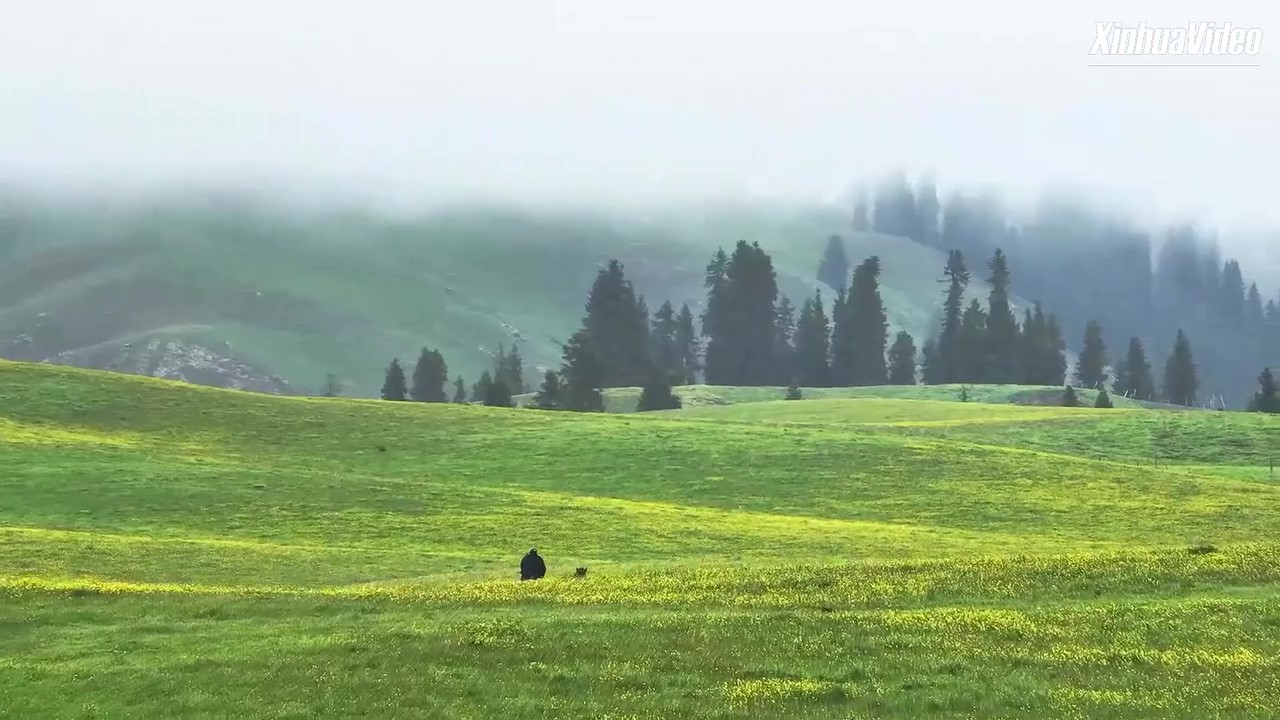
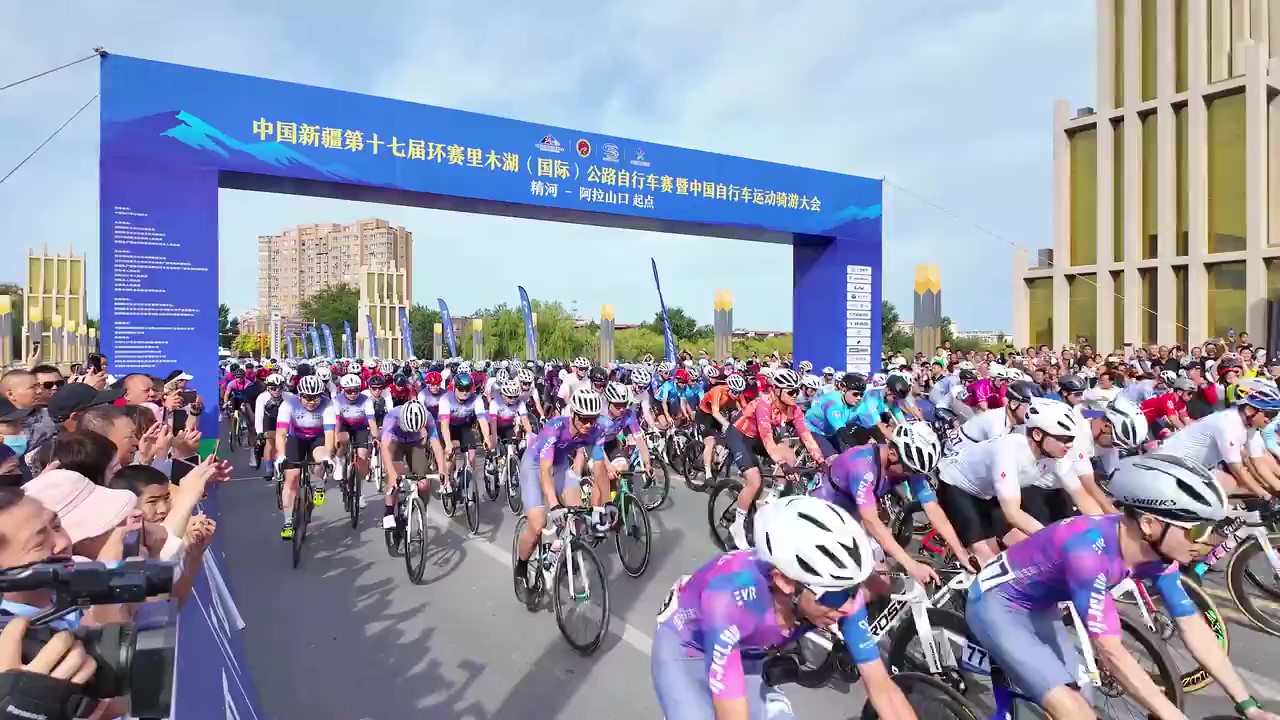

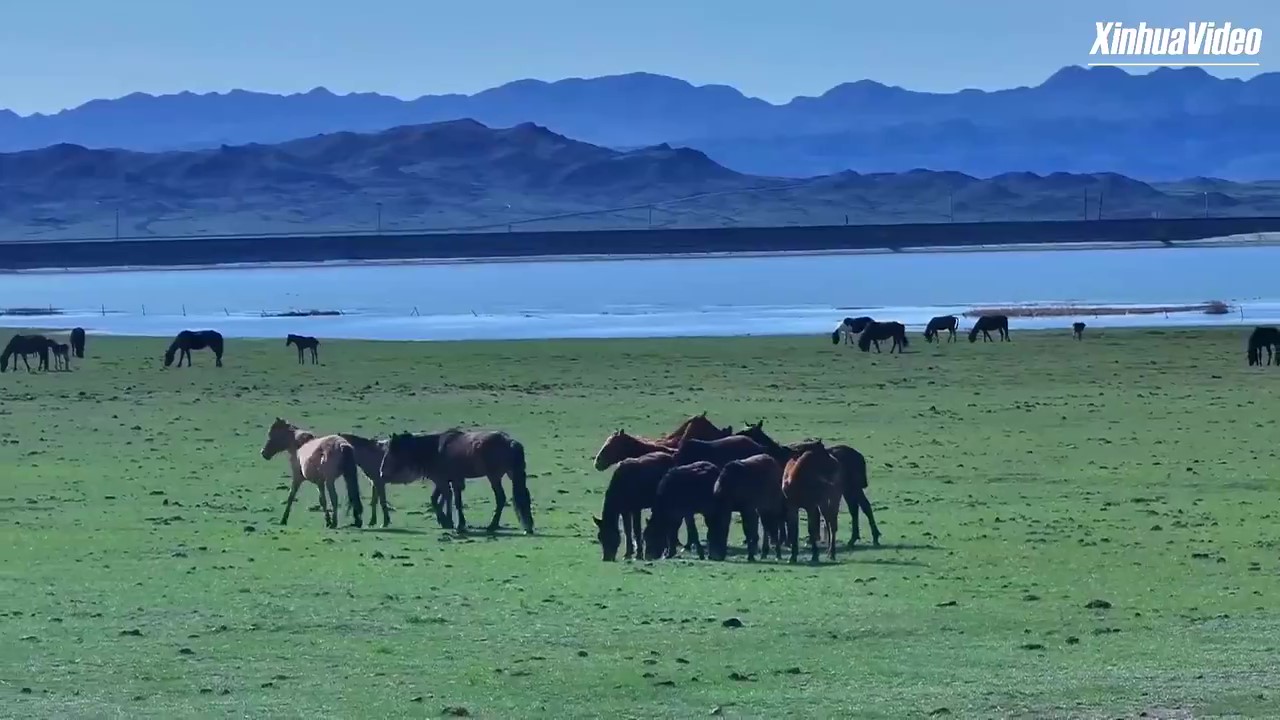


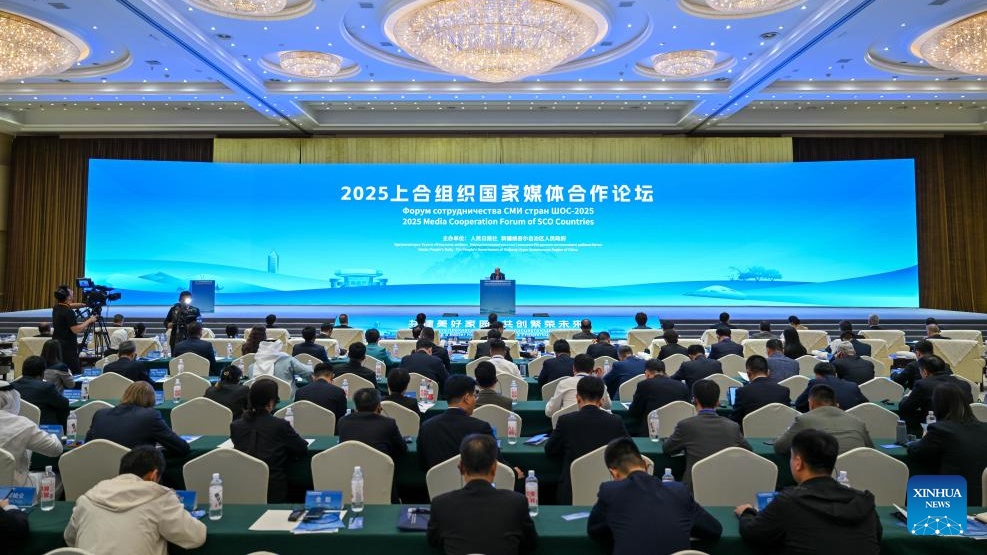
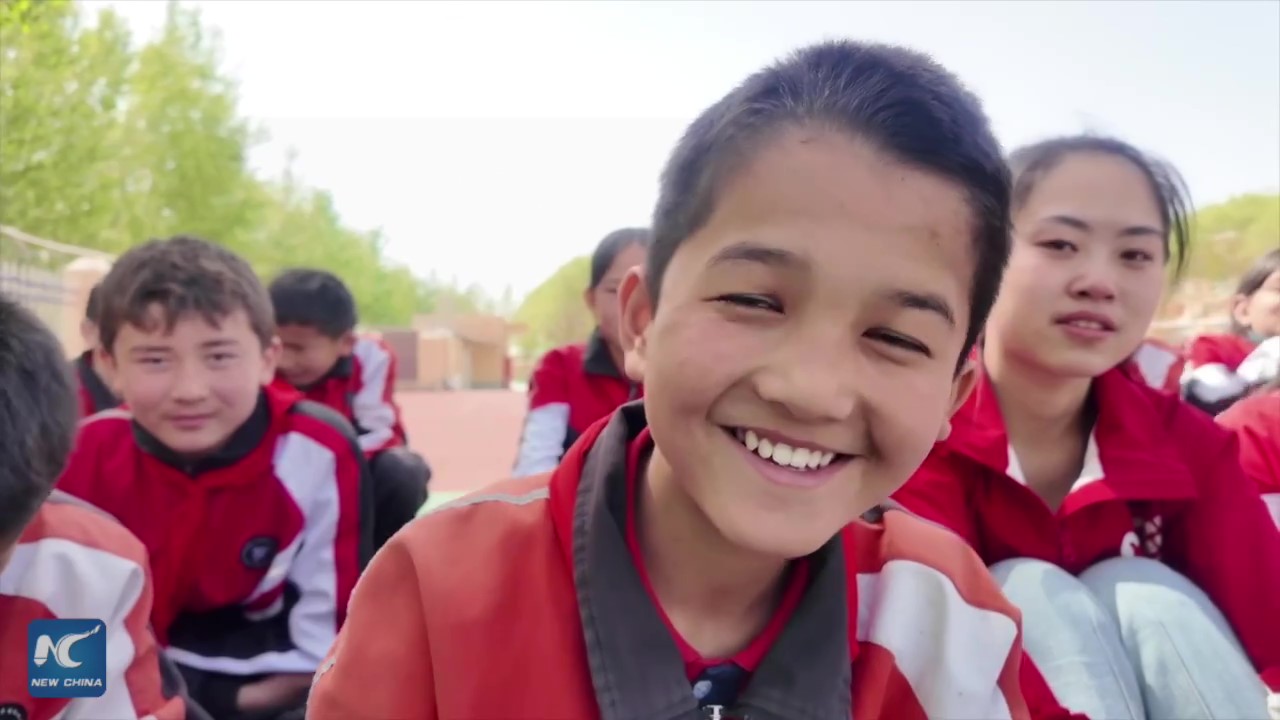
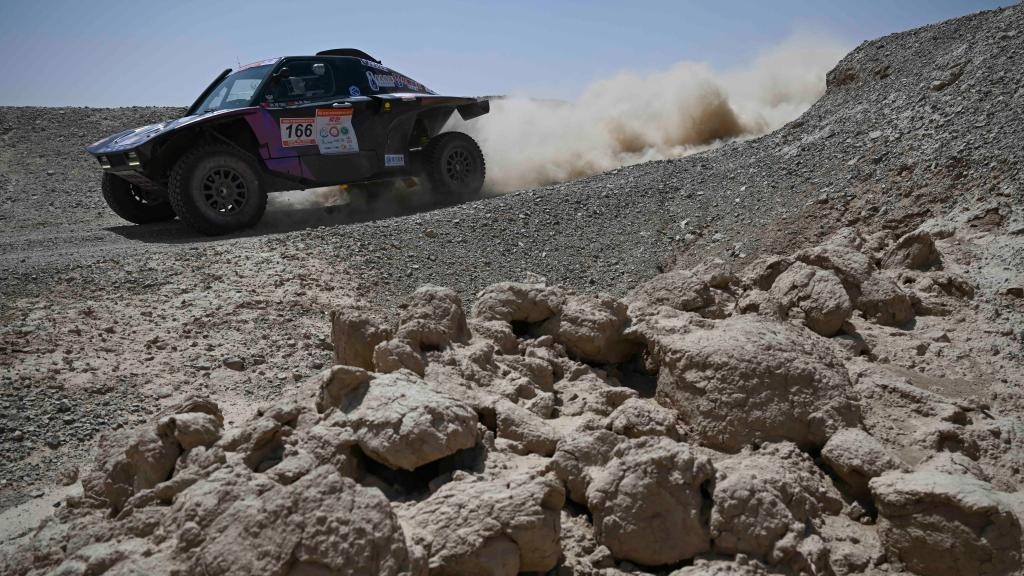

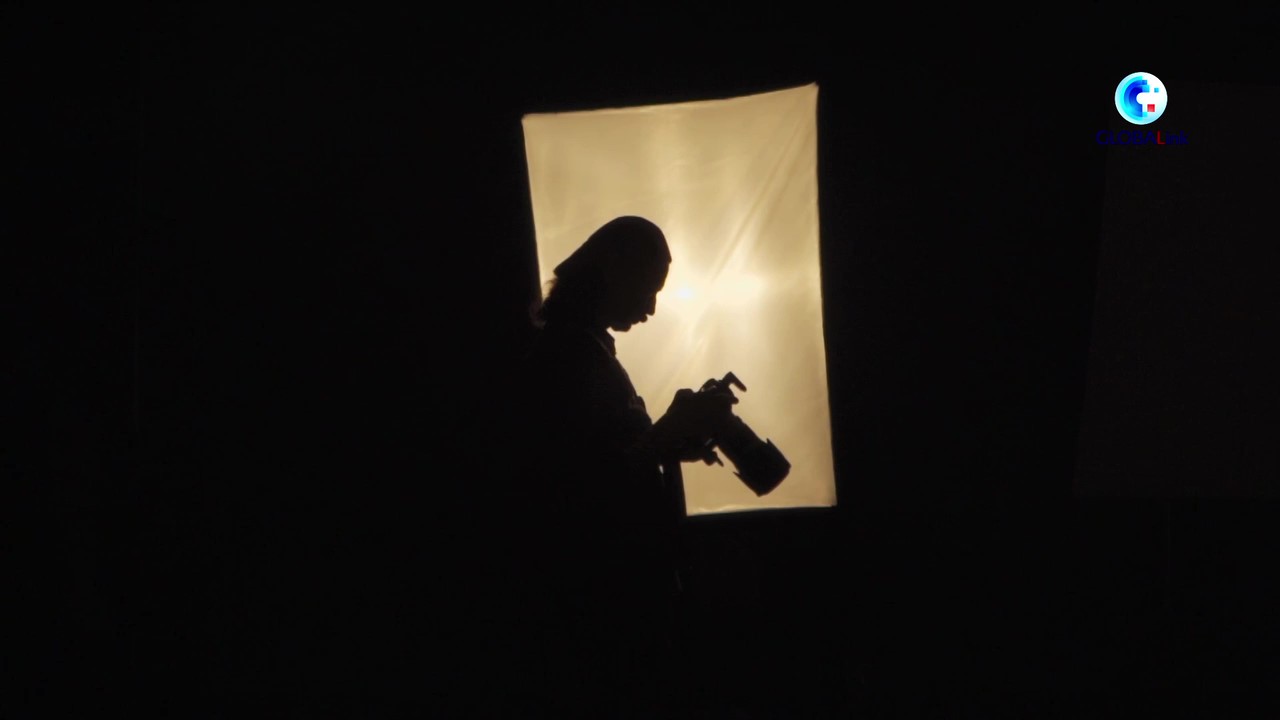

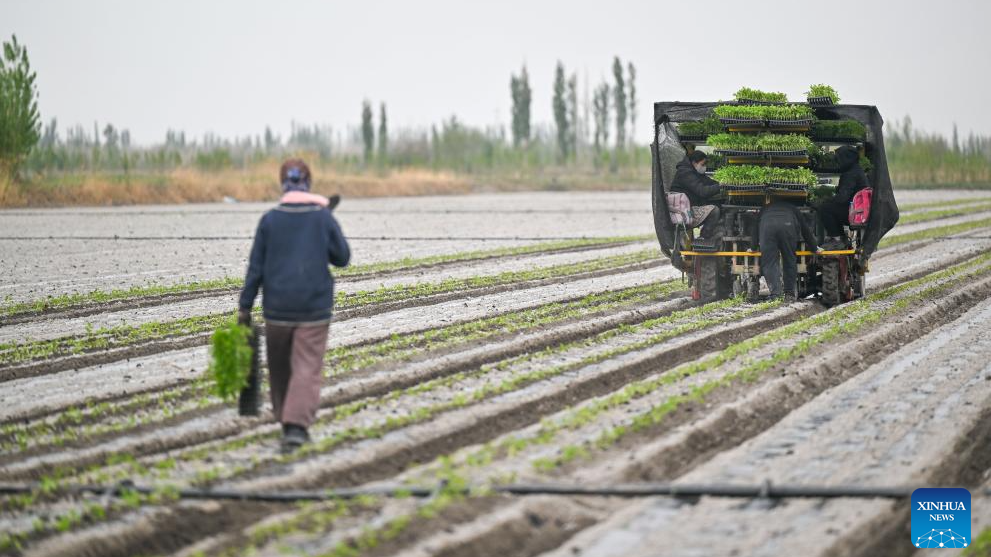


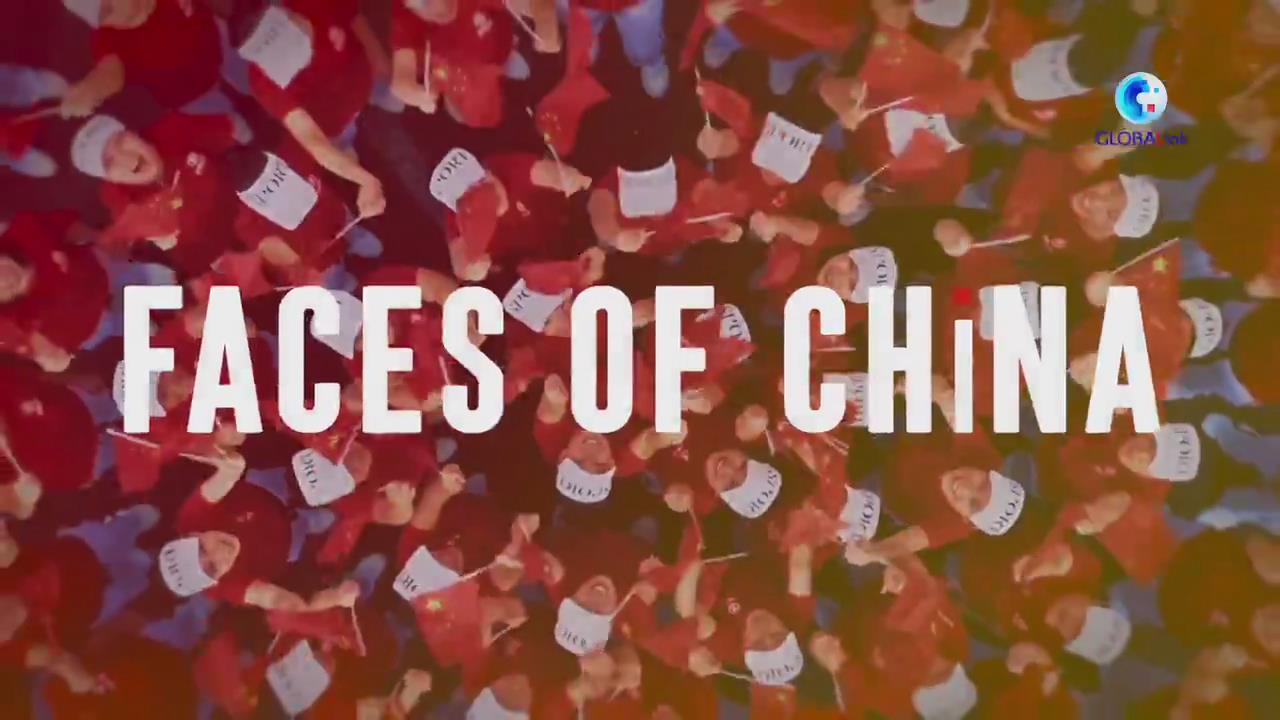
.png)
